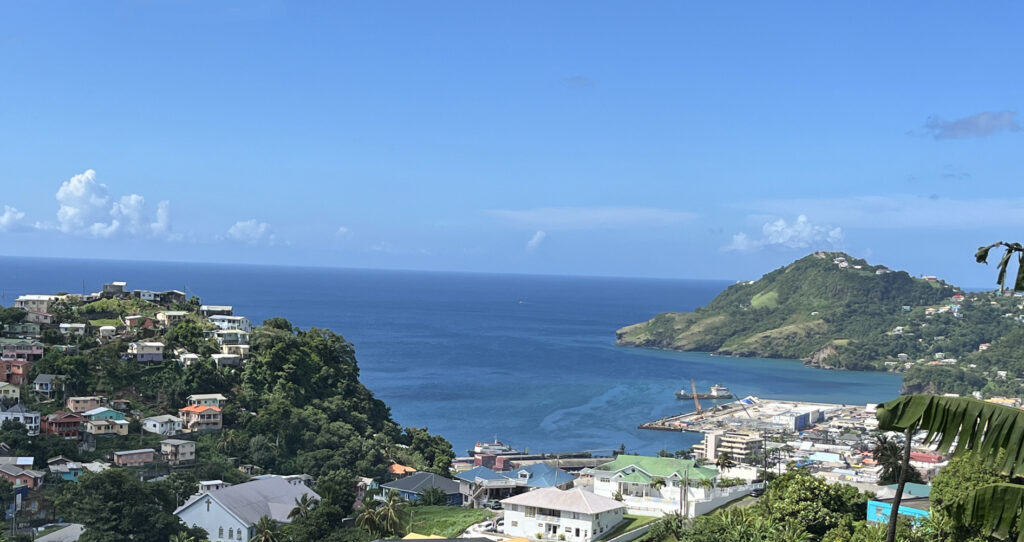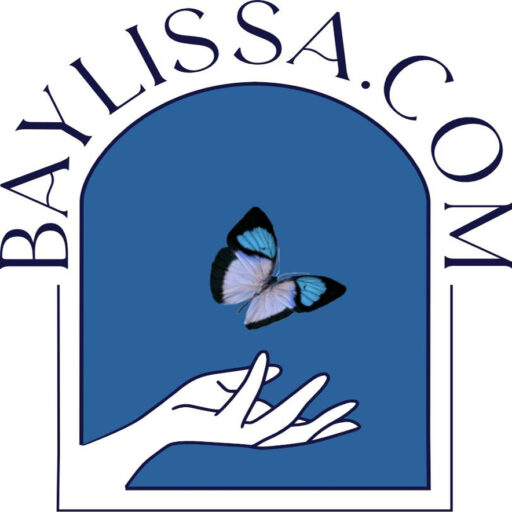A Journey Through Mislabelling and Stigmatization
I first arrived in the United Kingdom in the mid-90s, long before many of you, my healing friends, were born. I had travelled from the beautiful little island of Mustique, part of Saint Vincent and the Grenadines, via Barbados. Excited to be a student again, I was eager to explore, learn, and enjoy life. My plan was to return to the Caribbean and set up a practice.
Shortly after arriving, I registered with a doctor’s surgery. At that time, I was described by the doctor as ‘bright and sensible.’
From ‘Bright and Sensible’ to ‘Anxious and Depressed’
In the spring of 1998, I was prescribed Rivotril for paroxysmal dystonia/dyskinesia, a condition I’d had since childhood that worsened in the extreme cold. Initially, the medication seemed to help, but soon tolerance set in, and I became unwell. Through the Ashton Manual, I discovered the drug was the culprit. I requested a taper, endured a harrowing time coming off it, and eventually healed.
When I requested and reviewed my medical notes, the words ‘suffers from anxiety and depression’ leapt out at me. What? When? I had no such conversation with any doctor, nor had I been prescribed medication for those conditions. I wrote asking about the basis for this diagnosis. No one replied, and those words remain on my record to this day.
Mislabelling and its Consequences
That label has followed me ever since, resulting in dangerous situations that ultimately left me with no choice but to leave the UK.
The first time this mislabelling caused harm, a doctor in A&E dismissed my concerns, saying, “Well, don’t you have anxiety? Weren’t you on benzodiazepines?” I firmly corrected him: “No, I do not, and I never did. The drug was prescribed for a neurological condition.”
But that incident was minor compared to what followed. It was just the beginning.
A Critical Misjudgement
Years later, I was admitted to hospital with an intestinal blockage due to adhesions for which immediate surgery was necessary. I explained my dystonic episodes to the surgeon, particularly how they could cause complications with a PICC line which he said was required for intravenous feeding for a period after. Despite my explanation and demonstration of where the spasms occurred, the line was inserted in the very spot I had warned against.
Back on the ward, complications arose, and I experienced a Code Blue. I remember an alarm going off and all the staff including those from the adjoining wards rushing to my cubicle. My whole body convulsed violently as I choked and gagged, with sustained flapping of my limbs. It would not stop. Diazepam was administered and the line was removed. When I later questioned the surgeon about ignoring my pre-surgery concerns, his reply left me shaken: “Because you have anxiety and depression, I thought you were just anxious.”
In that moment, I thought, You could have killed me.
Later, I was not surprised when the duty nurse and her assistant came to my bed to give me my meds and one said to the other, ‘No, she can’t have the Tramadol. She is an addict. Remember?’ I was feeling too out of it to respond.
‘It’s All in Your Head’
The day after surgery I developed an infection and was fitted with a vacuum before discharge. When I got home, kind and attentive district nurses visited every third day. On one of their days off, with an extremely high fever and discoloured drainage, I called my GP. I explained that my temperature was elevated, and I was concerned about the change in colour of the discharge. Her dismissive and exasperated response was, ‘Is your temperature elevated, or do you think it’s elevated? Wait until the district nurse visits,’ and she hung up.
Desperate, I contacted my surgeon through his private practice at a nearby hospital. He met me there that evening. He immediately recognised the severity of my condition, prescribed antibiotics, and expressed his annoyance at the lack of care I had received.
There were other incidents in the ensuing years… but it was what happened most recently that made me realise how vulnerable and unsafe I will always be, if I remained in the United Kingdom where these labels precede me.
The Last Straw
For clarification, this has nothing to do with conspiracies. What I am sharing next is factual – just what happened to me.
My struggles escalated when almost immediately following the first vaccine (within half an hour), I experienced severe allergic reactions for which the paramedics had to come: throat and tongue swelling, blisters in my mouth, pulsatile tinnitus, swollen glands, left breast pain, and more. I felt deathly ill. As soon as the paramedics attended to me, while they were still there, my GP texted to say I was not to have the second vaccine. From that day, I reacted to almost everything – food I had always eaten, flowers, even my beloved cats. I spent more than a year in and out of hospital, with paramedics at my door regularly.

Each time the doctors would insist my symptoms were unrelated to allergies – usually with a smirk or sarcasm. I was perplexed that despite the visible swellings, bloodshot streaming eyes, tachycardia, diarrhoea, etc. (that would be relieved with antihistamines) they would not believe me.
The final straw was when they kept me in hospital for a week doing all sort of scans and then diagnosed me with interstitial lung disease ILD, which has a life expectancy of 3 to 5 years. I recall my nurse on that day looking at me with deep empathy after the doctor gave me the news. She put her hand on my shouolder to comfort me and said, “I am sorry. This is a tough one.”
Strangely, instead of being scared, I felt gratitude for the decades I’d already been blessed with and for spending my days supporting people I care for deeply. I started quietly putting my affiars in order… preparing for the end. I needed to sell my home to pay medical expenses, leave funds for my cremation, etc., so I advertised it for sale with the intention of returning to the Caribbean to spend my final years.
Some months after, while coming to terms with my imminent death and continuing with my plans, a voice urged me to get a second opinion. A private consultation with a pulmonologist revealed the truth. He confirmed that the interstitial change identified was in fact a tiny scar on my lung that had been present for years. I did not have interstitial lung disease. He said I was on his waiting list at the hospital and he would remove my name. He was not happy about the misdiagnosis. Actually, he was livid and apologetic. But, this is the reality of what happens and it confirms the power of stigma and labels. They would rather tell me I am dying, than listen to me and give the appropriate treatment.
Running for My Life
Despite this reassurance from the pulmonologist, I no longer felt safe in the UK. My repeated allergic reactions continued to be dismissed by the A & E doctors, and I was unable to obtain an EpiPen from my GP. With my luggage, and passport and British Airways ticket in hand, I headed for Gatwick Airport.
The NHS does remarkable work under immense pressure and I am grateful for all the treatment I received, but for those with our history, the stigma can be life-threatening.
Finding Safety and Healing
Back in the Caribbean, I sought care from an allergist who listened compassionately. When she gave me information on Mast Cell Activation Syndrome, I exhaled. She provided appropriate treatment including an EpiPen, as well as the validation I desperately needed.
I felt safe and heard. With treatment, my health is returning to normal and although the financial toll has been steep, I will not be broken by this. I will rise again.
Unrelated to Withdrawal
Before you even think it, this is nothing to do with discontinuing the drug all those years ago. I am completely healed from that life event. Reactions after the vaccine were completely different to anything I experienced prior. Long before withdrawal I was sensitive to MSG and this continued, but I used to walk around with my cat around my neck without a sneeze or ending up in hospital. The reactions I experienced were unprecedented and vaccine related. So please do not go there. I know that withdrawal brain! LOL I was surprised when I joined an MCAS group that there were many like me – there after the vaccine or jab.
Fall Down Seven Times, Get Up Eight

It is a miracle that I was able to find the strength to cope with all of this while continuing to work on the days I could. Being self-employed means not getting sick and I am grateful to all my members and clients who were patient with me as I cancelled or postponed sessions, struggled with internet issues, and did my best to support them, against the odds.
Now that I know that I am not dying from interstitial lung disease, I can focus on completing my studies and regaining my financial footing after medical bills, etc. I don’t know that I will return to the UK and I shudder at the thought. I can’t erase my medical records, and after everything, I just don’t feel safe there. When I remember my tongue protruding through my mouth and no one believing me, just like they didn’t during withdrawal, I am tentative about putting myself through that again and possibly risking my life.
Whether I had or have anxiety and depression or not, no one’s medical treatment should be determined by preconceptions, labels, and stigma.
One thing I know, is that what you are going through now – by the time it ends – will strengthen you beyond measure. When I tell you that healing from withdrawal.PAWS/ABIND will make you feel near-invincible and nothing in life will ever again faze you, believe me. It is true.
To anyone else dealing with the stigma of this reversible brain injury, I am deeply sorry. My heart is with you.
Thank you for reading this long post. Writing this has been therapeutic for me, and so I am grateful for your time.
With much compassion,


